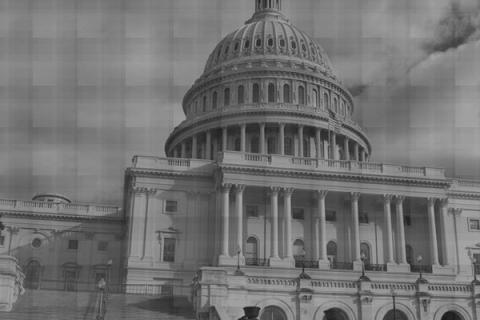Texas Republican Congressman and House Judiciary Committee head Lamar Smith defended stricter immigration enforcement measures at the national level, citing the fiscally negative impact that illegal immigration has had in states like California. He also deflected the charge that the policies are anti-immigrant.
"California is expected to have a $25 billion budget shortfall by June 2012. At the same time, illegal immigration costs the Golden State nearly $22 billion each year. If immigration laws were fully enforced, California's budget deficit would be nearly eliminated," Congressman Smith said in a recent Washington Times op-ed.
The Legislative Analyst's Office confirms that California is indeed headed toward the $25 billion figure and also says that it's an urgent matter. Concerning the costs that illegal immigrants thrust on the state, this is supported by anti-illegal immigration think tank Federation for American Immigration Reform (FAIR), which the Congressman cites in his piece.
In a more non-partisan way of examining the issue, a 2007 study from the Congressional Budget Office (CBO) said that spending on California's illegal immigrant population amounted to tens of billions of dollars. At that time, California also had the most illegal immigrants in the nation, much as they do to this day. While illegal immigrants are still costing the state to some extent in these areas during the state budget crisis, it's safe to assume that these costs are about the same today or even less, given that illegal immigration has steadied in recent years. Furthermore, while these studies differ in their ideological roots, they both agree on the immense costs that illegal immigration impose on the state. The necessity of a strong immigration policy indeed has important ramifications on California's budgetary circumstances. Officials should work together to examine what attracts illegal immigrants and by making necessary cuts.
Congressman Smith's argument branched out to larger implications of a strong immigration policy, dispelling generalizations about Republicans to correct what he saw as misconceptions about the party's hawkish stance. In praising legal immigrants, he sought to cool down the sentiment that his own party is anti-immigrant.
Praising the United States for the most generous legal immigration system in the world, he claimed it admits about 1 million immigrants per year and called them a net benefit to the nation as a whole. According to the most recent data available from the Office of Immigration Statistics, which is under the Department of Homeland Security, the number of legal immigrants admitted to the U.S. in 2009 was 743,715 immigrants. Smith's estimate is pretty accurate when the actual figure is taken into account.
On top of this statistic, Yahoo News reported that the United States initially approved 473 alien investor EB-5 visas in 2010. This particular visa allows foreign investors who spend between $500,000 and $1 million to start a new business that will provide at least 10 full-time jobs in the United States (or to invest in a struggling one). After two years, applicants and their family members can file for temporary or permanent residence.
Even in the midst of the Great Recession, the United States recognized that legal immigrants can bring significant economic contributions. Welcoming more foreign investors than they turned down during this time, only 148 EB-5 applicants were denied.
One of the most prominent House Republican immigration platforms is strengthening the E-Verify employment system, which Smith says merely ensures that legal immigrants are allowed to work and which also doesn't take into account race during the employment process. With E-Verify in place, more legal immigrants can be allowed to invest in the American economy while the others are weeded out from the system.
"E-Verify opens up job opportunities for citizens and legal immigrants by turning off the jobs magnet that encourages illegal immigration. If illegal immigrants can no longer live and work in the United States, many will simply return home voluntarily, and taxpayer dollars will be saved," Smith said.
Comprehensive immigration reform continues to remain a complex solution to which both parties have yet to come to a solid agreement. Despite all the partisan rhetoric surrounding the issue, I would argue that a policy of stricter enforcement offers the most potential in upholding the rule of law, saving money, and utilizing the many talents of legal immigrants.
%20Judiciary_storyslide_image.JPG)
